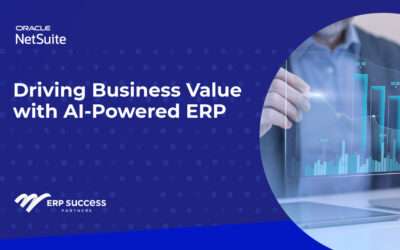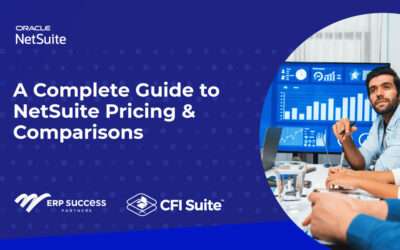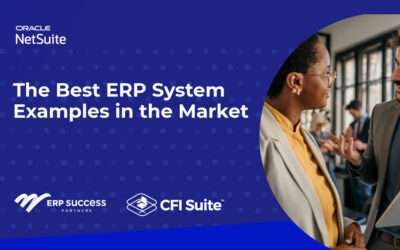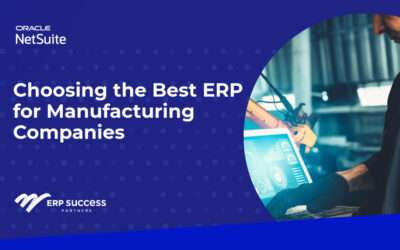Basic functionalities aside, here are some of the top attributes to look for in a new cloud enterprise resource planning system:
With companies of all sizes investing in cloud software right now, demand for cloud-based enterprise resource planning (ERP) systems is also on the rise. A movement that was underway pre-COVID, the push to adopt systems that allow employees to “work from anywhere” only accelerated when companies were forced to reimagine their workplace arrangements during the pandemic.
According to Gartner, the worldwide public cloud services market grew by 6.3% in 2020 to $257.9 billion, up from $242.7 billion the previous year. The pandemic drove at least some of that demand. “When the COVID-19 pandemic hit, there were a few initial hiccups but cloud ultimately delivered exactly what it was supposed to,” Gartner’s Sid Nag said in a press release. “It responded to increased demand and catered to customers’ preference of elastic, pay-as-you-go consumption models.”
Enterprise software that runs on a vendor’s cloud platform (as opposed to an on-premises network), cloud ERP allows organizations to access the system via the web. It integrates and automates essential financial and operational business functions, and provides a single source of data (e.g., inventory, order and supply chain management and support for procurement, production, distribution, and fulfillment).
In Five Key Advantages of Cloud ERP, CIOReview highlights the key benefits of cloud ERP as robust security (for businesses of all sizes); good service support (available around the clock); and a lot of flexibility (it’s available anytime and from anywhere). These are all important qualities to look for when shopping for cloud ERP in 2021, with the latter being especially critical at a time when more people are working remotely.
Other key features that your cloud ERP should provide include real-time analytics, the ability to scale up quickly as your organization grows, and low operating costs. “Cloud ERP has lower operating costs compared to on-premises ERP systems,” CIOReview points out. “Cloud vendors offer ERP solutions that are reasonably priced and customized to work around the company’s budget.”
And because cloud ERP is hosted by the vendor and provided as a service to businesses, it supports the same (or better) functionality as on-premises systems—and all without most of the downsides (i.e., upfront licensing fees), Oracle NetSuite’s Scott Beaver writes in What is Cloud ERP and How Does It Work?
Most cloud ERP solutions offer core financial and accounting functionality. “From there, the types of modules or applications an organization chooses to implement depend on its industry and specific business needs,” Beaver points out. For example, other available cloud ERP modules include (but aren’t limited to) human resource and capital management; customer relationship management; inventory, order, and procurement management; supply chain management; project management; and material requirements planning.
Along with offering these basic and advanced modules, your new cloud ERP platform should also be able to:
1. Meet your current and future business requirements.
Cloud ERP is particularly good for organizations that are growing quickly and/or that need to scale quickly.
2. Lower your upfront infrastructure and operating costs.
“One of the biggest benefits of a cloud-based ERP solution is overall reduced costs, which begins at implementation,” Beaver writes.
3. Provide fast implementation speed.
A business can normally get up and running more quickly on a cloud-based ERP system than on-premises as it does not require selecting and setting up hardware or hiring and training IT staff.
4. Be accessible.
“Cloud-based ERP users can access business information in real time, from anywhere and on any device,” Beaver points out.
5. Be scalable.
As a business grows, the cloud ERP grows. “An organization can start with the basic, core functionality and add more as needed,” Beaver writes, “without adding more hardware.”
6. Provide easy integrations with other software systems.
As a business grows, the cloud ERP grows. “An organization can start with the basic, core functionality and add more as needed,” Beaver writes, “without adding more hardware.”
7. Rely less on your internal IT resources.
Cloud ERP vendors typically manage all system upgrades and updates on an ongoing basis, keeping up with evolving business needs and ensuring customers are using the most up-to-date technology.
8. Offer good security, compliance, and disaster recovery.
As a business grows, the cloud ERP grows. “An organization can start with the basic, core functionality and add more as needed,” Beaver writes, “without adding more hardware.”
9. Provide data storage resilience and access.
With cloud-based ERP, data is housed in the provider’s data centers, usually redundantly and geographically dispersed.
With the global pandemic not yet under control, and with some companies publicly announcing their intentions to allow employees to work remotely during 2021, cloud ERP has become a popular choice for firms looking for a unified, all-encompassing business management solution. Using the tips outlined in this article, you can whittle down your list of software options and find the right match for your organization.






